Blockchain, IoT and Resale
Can technology scale the resale market?
Project Period: September 2022 – July 2025
Project Status: Finalized Pool: TRACE Pool1
Lead: Copenhagen Business School
A scaling of fashion resale requires traceability of individual garments and technology for locating and disseminating one-offs on the secondary market, as well as a deeper understanding of value creation and market mechanisms. This project aims at aligning and validating state-of-art of blockchain and IoT technology, as well as investigating user behaviour and economic flows on the current resale market.
The effective use of blockchain, IoT and integration into existing systems requires significant technological knowledge, making the transition into using blockchain hard for small and medium sized enterprises.
Furthermore, resale is contradicting current linear trend- and seasonal logics of the fashion sector which is one of the primary barriers for scaling of resale and take-back schemes both in terms of mindset and logistics.
By being proactive Danish companies can lead the development of solutions that incorporate Danish and European preferences into the standardization process rather than being subjected to the systems of Chinese or American companies or the global Internet giants such as Amazon or Alibaba. DK currently has a stronghold of resale in EU as 9% of DK clothing purchases are resale against 5% in other EU countries. The resale market is immature globally but is estimated to take over fast fashion by 2030. DK could be lead in this through clever implementation of IoT and blockchain technology combined with deep consumer- and market insights. Digital prototypes created with blockchain and IoT technology can decouple resources in the design phase which can save 10-20% textile waste during production. Tracking devices can help inform valid LCA measurements and design practices for longevity and can thereby support legislation and policy making for circularity of the fashion market, currently the most linear sector in the world due to the prevalent trends- and seasonal mindset. Scaling of resale can push for longer use phases of clothing which is vital to ensure climate goals.
Resale is estimated to generate $64B by 2024 and is the only viable way of reducing waste of clothing, pushing for better quality garments, and reducing poor quality textile waste.
Participating partners: Royal Danish Academy, Alexandre Instituttet, Copenhagen Business School, Lifestyle & Design Cluster, Continued Fashion, Create2Stay, Sassy Lab, NN07, By Green Cotton, Soulland, ReShopper, Konges Sløjd, Textile Pioneers and Fritz Hansen.
For value-creating resale of products, the TRACE project has formulated a foundational framework built on these key pillars:
Below on the website, you will find materials, articles, and resources that support and elaborate on the following five concepts:
-
Knowledge Base: Establishing a solid understanding of current blockchain and IoT solutions, evaluating their technology readiness levels to support transparency, traceability, and scalability in the fashion and reseller markets.
-
Industry Mapping: Analyzing and mapping global supply chain standards with a defined set of events, data flows, and touchpoints. This ensures alignment with societal readiness levels by identifying the societal implications and adoption barriers of technological solutions.
-
Data Analysis: Conducting in-depth studies of transactions and interactions on resale platforms to identify trends and correlate data from resale activities with supply chains. This strengthens the interplay between technology readiness and societal readiness by providing actionable insights that address both technical and societal needs.
-
Value Creation Studies: Exploring both economic and emotional drivers of value creation in the resale market through qualitative research. This addresses circular readiness levels by uncovering key enablers and barriers to scaling circular economy initiatives and fostering societal adoption.
-
Collaborative Dissemination: Engaging 30+ industry experts through workshops and educating 200+ participants via events and resources. This includes educational case stories, practical use cases, and podcasts. These efforts advance CRL by promoting circular strategies, while contributing to SRL by ensuring that findings are accessible and actionable for a wide range of stakeholders.
How can technology boost resale?
By 2050 80% of the revenue stream in fashion is from resale – this is the vision of the TRACE project. But how do we get there?
Meet these three AI personas – they represent the collective dreams and visions of 16 participants in the TRACE project, reflecting on the future from the year 2050.
Meet Javier Cortés
A 70-year-old pioneer in digital fashion platforms, who has dedicated his career to making fashion accessible, collaborative, and sustainable. As a visionary Digital Fashion Platform Developer, Javier reflects on how technology has transformed fashion into a shared resource rather than something to own. Looking back from 2050, he shares his hopes for a future where circular fashion thrives, and every garment can touch countless lives.

Meet Priya Khanna
A 66-year-old Fashion Educator and Workshop Facilitator dedicated to transforming how we connect with our clothing. Known for her colorful style and passion for sustainability, Priya has spent her career teaching people to repair, upcycle, and personalize their wardrobes. Reflecting from the year 2050, Priya shares her journey of empowering individuals to move from fast-fashion consumers to proud creators and caretakers of their garments. Her hope? That future generations continue this tradition of valuing, nurturing, and cherishing fashion.

Meet Anika Jansson
A 68-year-old Sustainability Manager and a true pioneer in circular fashion. With decades of experience, Anika has dedicated her career to eliminating waste by creating systems that ensure every garment is tracked, repurposed, or recycled. Looking back from the year 2050, Anika shares her vision of a world where landfills are relics and fashion is designed for endless cycles. Her hope? That the next generation finds beauty in sustainability and continues the journey toward a fully circular future.

Listen to the new Trace podcast series
We are excited to present our podcast series about the resale market and the latest technologies in the fashion industry. You will meet experts from the TRACE project, who, together with leading companies like Samsøe Samsøe, NN07, Bestseller, Soulland, Continued, and By Green Cotton, explore how resale can extend the lifecycle of garments and enhance sustainability. They address three issues
- What is resale, and what challenges and opportunities exist? Hvad er gensalg - udfordringer og modsigelser i bæredygtig mode? Lyt med her Podcast 01
- How to implement resale in practice? Hvordan Praktiseres Gensalg? Strategier og Udfordringer? Lyt med her Podcast 02
- The role of technology in the resale market and the importance of data. Teknologiens rolle i modebranchen og gensalgsmarkedet? Lyt med er Podcast 03
The podcast is in Danish and is funded by TRACE, supported by EU and Innovation Fund Denmark and developed in collaboration with Lifestyle & Design Cluster, Copenhagen Business School, Royal Danish Academy, and the Alexandra Institute.
Use Case: Scaling Resale with Technology to Boost Circular Economy
By Green Cotton showcases how technology can revolutionize resale and foster a circular economy. In collaboration with Create2Stay and By Green Cotton’s own digital team, the brand integrates QR code labels into products like the Musli Santa Body. These labels, marked with a message such as "Don't cut me, I have value," connect directly to the product’s digital twin when scanned with a smartphone.
The digital twin provides customers with:
- Product Origin: Insight into where and how the product was manufactured.
- Ecological Certificates: Verification of sustainability standards.
- Care Instructions: Practical tips to ensure longevity.
- Repair Guides: Resources to maintain the product’s condition and reduce waste.
- Reuse/Resale Options: Effortless access to resale platforms like RE-LOVED, where pre-loved items in excellent condition can find new homes.
This initiative, introduced as part of By Green Cotton's holiday collection, empowers consumers to make informed, sustainable choices while prolonging the value and lifecycle of their products.
By embedding this technology, By Green Cotton strengthens its sustainability commitment, enhances customer engagement, and simplifies the path to circular consumption—ultimately contributing to a greener, more resource-efficient future.
Current blockchain and IoT solutions for the fashion and reseller market.
Screening of current blockchain and IoT solutions. Showcasing the overview of current solutions and shared through the educational tracks
The educational cases showed
Do you know what happens to clothes after the point of sale? Blockchain and Internet of Things can boost resale practices in the textile and clothes industry read the article https://trace.dk/media/lykccccm/2_education-case-blockchain-and-iot-for-the-resell-strategy.pdf or see the presentation https://trace.dk/media/jqzlh1xk/resale-strategi-_-231025-caspar-lotta-resell.pdf Author: Lotta Moll & Caspar Müller Lütken
What is the true story behind your clothes? Can a textil product tell a story? How can textil and clothing companies navigate the Digital Product Passport maze? This article will share inspiration and ideas for textile & clothing organizations. https://trace.dk/media/wt2lbj4r/1_education-case-what-is-the-true-story-behind-your-clothes.pdf Author: Annabel Kathrin Kläre & Carl Emil Derby Hansen
Enhancing brand transparency through blockchain and internet of things. many products falsely claiming to be sustainable, two digital technologies, blockchain and Internet of Things (IoT), emerge as promising enablers to enhance supply chain transparency and share detailed information with customers https://trace.dk/media/w12byt1t/4_education-case-empowering-sustainability.pdf Author: Lotta Moll & Caspar Müller Lütke
How digital twin technology is fighting counterfeit Products. Brands can preemptively adopt digital twin technology to protect intellectual property and promote sustainability and foster data driven decision making. https://trace.dk/media/0h3ioqv0/5-education-case-counterfeit.pdf Author: Felix Prieto Gesner
Empowering small-to-medium sized businesses with blockchain. A guide to sustainable innovation https://trace.dk/media/b3nb5jj5/9-education-case-empowering-small-to-medium-sized-businesses-with-blockchain.pdf Author: Louise Ottesen
Digital Twins for Circularity.
Because it supports circular models by enabling virtual prototyping, tracking, and reducing resource use. Education Case Digital Twins For Circularity Author: Louisa Brügmann & Caroline Bieser and find their highligths here
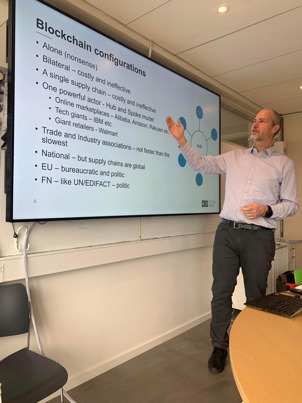
Research
How will Blockchain look if the industry came together in a solution? Presentation by Jan Damsgaard https://trace.dk/media/f5pkfvcl/blockchain-as-industry-standard.pdf
What is a digital twin of a physical product – how does it link to the digital product passport? Presentation by Thomas Jensen https://trace.dk/media/djbpuzg4/digital-product-passport-presentation.pdf
Overview IoT, Blockchain & Resale market for the lifestyle industry by Thomas Jensen https://trace.dk/media/hrvmbp4k/wp-1_how-can-technologies-accelerate-the-business-opportunities-toward-ce.pdf
Development in 'Internet of things' Report by CBS professor, Jan Damsgaard https://trace.dk/media/boledcsy/development-in-iot_report.pdf
Use-case
Listen to Morten from Fritz Hansen and Kim from Textil Pioneers explore how they has worked with technology for transparency and traceability https://youtu.be/Q2PMsYmxv44
In TRACE, we have examined 20 inspiring use cases showcasing how various companies have integrated resale into their strategies. This article is in danish. artikle_-20-use-cases-vers-2.pdf
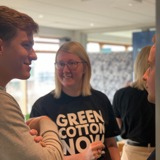
Mapping the industry standard of the global supply chain.
Identification and description of generic events in a global supply chain across different fashion companies.
Research
Industry Standards for A Global Supply Chain. A PARADOX OF STANDARDS? A Reflection on Industry standards for the global supply chain in the context of Fashion Industry, After Sales Markets, and DIGITAL TWINS, Product Passports. Presentation by Gûnter Prockl A PARADOX OF STANDARDS?
Unlocking the Future of Fashion through Data & Collaboration Standardizing Data for a Brighter Future: Uncover the roles and contributions of Gaia-X in shaping industry process Presentation by Tassilo Schuster Unlocking the Future of Fashion through Data & Collaboration
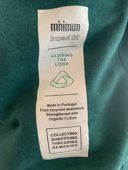
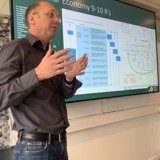
Educational cases
Cooperative movement for a transparent industry. This article summarizes the findings of a study that investigated how an industry-wide blockchain solution in the fashion- and textile industry should be governed. The cooperative movement for a transperent industry. Author: Magnus Espensen & Sebastian
Use-case
Listen to Delouge share how they work with data to empower the design, the fashion brand and their supplychain https://youtu.be/aggRS4lMUlU
Listen to Reshopper share how their successful c2c resale platform relies on data and what oppotynities they have to share with brands so they can learn from data and how their brand perform in the resale market https://youtu.be/aggRS4lMUlU
Data analysis of transactions and interactions on selected resale platforms.
Trends in the reseller market. Why does the market react as it does? By utilizing data from current reseller platforms, it will be possible examine what mechanism powers this market. Benchmark data from the reseller market with data from the production of fashion. What data is needed in the first place, from upstream market to empower the downstream market.
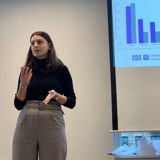
Research
From consumer habits to new tech: how to harness resale. This article explores recent research based on a systematic literature review on consumer behaviour in the global resale market, identifying key motivators and barriers. From consumer habits to new tech: how to harness resale. Author: Réka Zsófia Kékesi, Theresa & Sophie Sitte
Data, data analytics and AI. Leveraging Data and AI in the Danish Clothing Resale Market. Read the article here Author: Nikolaj Viktor Brøchner Pettersson & Jakob Appelby Henriksen
Resale markets, which trends and mechanisms drive the market. Presentation by Christiane Lehrer is an Associate Professor at the Department of Digitalization, Copenhagen Business School Resale markets, which trends and mechanisms drive the market
The potential in utilizing AI for scaling resale - see the presentation by the Alexandra Institut
Use-case
SassyLAB.dk a pure player in resale. They are sharing how their business model works, how to partner with a resale platform and how they see the customers navigating this space. Listen to the founder Thomas Medard's presentation by accesing this link.
Create2stay is a platform that supports brands in doing branded resale. They are sharing how brands can get started on resale and what benefits the brands will gain. Listen to Thomas Østergaards presentation here Create2stay
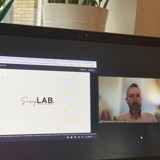
Qualitative studies of value creation on the resale market
Study of brand performance on the resale market with selected brands, where selected styles are followed to understand value creation (both economic and emotional). Further analysis of previous studies, anchored in the participating brands and resale platforms. Trends, knowledge, and findings are shared.
Use Case: Is Your Product Worth Circulating?
Discover how brands are exploring the potential of resale markets in this insightful video. For example, Konges Sløjd leverages resale market data to see that their products hold value for circulation – but how can they, as a brand, actively contribute to the business model?
Lone Haumann from Lifestyle & Design Cluster highlights the efforts of the Volunteer Sector Collaboration, which is supporting 60 brands in their transition to circular business models.
Meanwhile, Mette Dalgaard, PhD student, shares key findings from her research with brands like GANNI and Baum und Pferdgarten, providing valuable insights into the opportunities and challenges of circularity.
Watch the full video here: https://youtu.be/A0YXhNX7fTc
Research
Value Creation in Secondary Markets presentation by Mette Dalsgaard find slides here.
Article by Mette Dalgaard Nielsen, Ph.d.-stipendiat at the Royal Academy: Does Resale Extend the Use Phase of Garments? Exploring Longevity on the Fashion Resale Market. Find it here
Does resale extend the use phase of garments? Article published in Intellect Discover published by International Journal of Sustainable Fashion & Textiles, Volume 3, Issue the Future of Sustainable Clothing Use Practice. Discover more here.
Articles on resale and sustainability by Mette Dalgaard Nielsen. Find them here.
Gensalg og genbrug af tøj bulder derudad. Publication by Branchebladet TØJ https://adk.elsevierpure.com/da/clippings/gensalg-og-genbrug-af-t%C3%B8j-bulder-derudad
Vi bruger rekordmange penge på genbrugstøj, men køber ikke mindre nyt af den grund. Publication by Kristlig Dagblad. https://adk.elsevierpure.com/da/clippings/vi-bruger-rekordmange-penge-p%C3%A5-genbrugst%C3%B8j-men-k%C3%B8ber-ikke-mindre-
Ph.d. i design og bæredygtighed: Det er vildledende at omtale genbrugstøj som en del af problemet https://politiken.dk/debat/debatindlaeg/art10131095/Det-er-vildledende-at-omtale-genbrugst%C3%B8j-som-en-del-af-problemet
International paper from the project ‘Blockchain, IoT and Resale’
Exploring Longevity in the Fashion Resale Market
We are excited to introduce this paper from the project ‘Blockchain, IoT and Resale’
The paper was first presented at the PLATE conference in Helsinki June 2023 and has now been published in a special issue of the esteemed International Journal of Sustainable Fashion and Textiles, edited by Kirsi Niinimaki Headed by the title: “Does Resale Extend the Use Phase of Garments? Exploring Longevity in the Fashion Resale Market”.
PhD. Mette Dalgaard Nielsen and Associate Professor, PhD. Else Skjold from the Royal Danish Academy have asked the question whether resale extends the lifetime of garments or not.
Through a ‘follow-the-garment’ netnographic approach that locates in-and-out flow of reseller wardrobes and resale platforms, the study analyses selected resale mechanisms that hinder or promote longer lifetimes of garments. The conclusion shows that resale does not in itself extend garment lifetime, but that it has huge potentials for doing so given the right circumstances.
Several Danish fashion brands and resale platforms are involved in the study, amongst these Baum und Pferdgarten and Ganni A/S.
Project Leader

Jan Damsgaard
Mail: jd.digi@cbs.dk

















